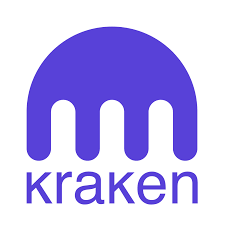Which Crypto Exchange to use?
Disclaimer
Investing in cryptocurrencies, Decentralized Finance (DeFi), and other Initial Coin Offerings (ICOs) is highly risky and speculative, and the markets can be extremely volatile. Consult with a qualified professional before making any financial decisions. This article is not a recommendation by Coinbitmine or the writer to invest in cryptocurrencies nor can the accuracy or timeliness of the information be guaranteed.
As with any financial decisions we advise our readers to do their own research.
Security
Your exchange account should be safe from cybercriminals looking to drain your balances if you follow good online security practices. Once an account is funded, it’s extremely wise to add two-factor authentication. To keep your account safe, be sure to enable two-factor authentication (2FA), which prevents anyone from logging into your account without your device and a randomly generated code in hand. You can create different two-factor codes for sign-in, account withdrawals, and trades. There’s also a feature to lock your account from any changes if you’re concerned that your account was breached.
As cryptocurrency blockchain transactions can’t be reversed, crypto accounts are a common target for fraud. Beware of these risks when using any exchange.
When choosing a cryptocurrency exchange, consider the following factors:
1. Security: Security should be your top priority when selecting a crypto exchange. Look for exchanges that have robust security measures in place, such as two-factor authentication (2FA), cold storage for funds, encryption protocols, and a strong track record in protecting user assets. Research the exchange’s security practices and any past security incidents.
2. Reputation and Track Record: Check the reputation of the exchange in the cryptocurrency community. Look for exchanges that have been operating for a considerable period and have a positive track record. Read user reviews and feedback to get insights into their reliability, customer service, and overall reputation.
3. Regulatory Compliance: Ensure that the exchange operates in compliance with relevant regulations in the jurisdiction(s) it operates in. Exchanges that adhere to regulatory frameworks offer an additional layer of protection and legitimacy to their users.
4. Available Cryptocurrencies: Different exchanges offer various cryptocurrencies for trading. If you have specific cryptocurrencies in mind that you want to trade or invest in, ensure that the exchange supports those coins. Additionally, consider the exchange’s liquidity for the desired cryptocurrencies to ensure smooth trading.
5. Trading Fees: Exchanges charge trading fees for executing trades. Compare the fee structures of different exchanges to find competitive rates that align with your trading frequency and volume. Pay attention to any hidden fees or withdrawal charges as well.
6. User Interface and Experience: The user interface (UI) and user experience (UX) of the exchange should be intuitive and user-friendly. The platform should offer easy navigation, clear trading charts, order books, and account management options. Test out demo accounts or try the exchange with a small amount of funds to gauge the platform’s usability.
7. Deposit and Withdrawal Methods: Check the available deposit and withdrawal methods supported by the exchange. Consider factors such as transaction fees, processing times, and convenience. Ensure that the exchange supports your preferred payment methods and offers adequate liquidity for deposits and withdrawals.
8. Customer Support: Reliable customer support is crucial, especially when dealing with financial transactions. Look for exchanges that provide responsive and helpful customer support through multiple channels, such as email, live chat, or phone.
9. Geographical Restrictions: Some exchanges have restrictions on the countries they serve. Verify if the exchange allows users from your location to register and trade on the platform.
10. Additional Features: Consider any additional features or tools offered by the exchange, such as mobile apps, advanced trading options (like margin trading or futures), lending and staking options, or integration with third-party services.
Remember to conduct thorough research and due diligence before choosing a cryptocurrency exchange. Compare multiple exchanges based on the factors mentioned above to find one that aligns with your trading needs, security requirements, and overall user experience.
11. When choosing a Crypto exchange consider the following: list of cryptocurrencies they support, ease of use when you are new to Crypto trading, transaction fees, customer service, security, and the company’s history.
12. To give you an idea these are only a few companies from a long list of Crypto Exchanges and my personal experience with them.
Kraken

Kraken is a United States–based cryptocurrency exchange, founded in 2011 with offices around the world.
Kraken supports customers in over 190 countries. It was one of the first bitcoin exchanges to be listed on Bloomberg Terminal and is reportedly valued at US$10.8 billion, as of mid-2022. Wikipedia https://en.wikipedia.org/wiki/Kraken_(company)
Established: 28 July 2011
Currency: A few of the Cryptocurrencies: BTC, ETH, DOT, ADA, DOGE, XMR; Fiat currencies: USD, EUR, JPY, GBP, CAD, AUD, CHF, AED
Kraken is a good choice for new and experienced crypto investors
Kraken is a cryptocurrency exchange where you can buy and sell assets such as Bitcoin and Ethereum. Kraken is one of the oldest Bitcoin exchanges and supports 220+ different coins to buy, sell, and trade with competitive exchange fees. Kraken also supports stablecoins including Tether USD, USD Coin, and Dai. Some fiat currencies are supported including USD, EUR, and GBP. but note that not all currencies are available in every country.
Kraken has a simple user interface and is relatively easy to use even if you don’t have crypto experience.
The main Kraken platform charges higher transaction fees when not using Kraken Pro.
Kraken is a major cryptocurrency exchange that makes it easy to buy, sell, and exchange a long list of dozens of different cryptocurrencies including market leaders Bitcoin and Ethereum. The easiest place for new crypto investors to start in the Kraken ecosystem is the main Kraken platform. More experienced traders, even outside of cryptocurrency, may prefer the lower-cost active trading platform Kraken Pro.
Coinbase Exchange

Coinbase was founded in 2012 and was created as a platform to help anyone buy and sell crypto with ease from any part of the world. The Coinbase exchange has more than 3,500 employees and a $130 billion-dollar asset base and has become one of the biggest crypto exchanges globally. Official Website – Coinbase.com
Coinbase is a popular cryptocurrency exchange that allows anyone with an account to buy, sell, and exchange cryptocurrency. It makes buying crypto straightforward but is known for high fees and poor customer service with over 250+ Cryptocurrencies Available.
Coinbase has an easy-to-use user interface for crypto and NFT and supports an extensive list of cryptocurrencies and features a native NFT marketplace.
The transaction fees can be relatively high compared to some of the other exchanges.
As part of its decentralization efforts, Coinbase has no headquarters, so teams work remotely from across the world.
BitMart

BitMart is registered in the Cayman Islands and has offices in South Korea, China, and the United States.
BitMart was founded in 2017, with over 9 million users in over 180 countries. In addition to advanced cryptocurrency spot and futures trading dashboards, BitMart offers a simple buy/sell crypto feature for beginners and a range of crypto-earning opportunities.
BitMart is a global cryptocurrency exchange that allows users in 180+ countries to buy and sell over a thousand digital currencies and tokens.
BitMart provides a simple buy/sell crypto feature where beginners can buy Bitcoin and other digital currencies using a range of payment methods with just a few clicks.
In 2018, BitMart launched the BitMart Token (BMX), which provides token holders with trading discounts and other benefits on the exchange.
In 2021, BitMart suffered a security breach that led to the loss of $196 million worth of cryptocurrency when private keys were compromised for two of the trading platform’s hot wallets. Following the incident, the company’s CEO, Sheldon Xia, announced on Twitter that BitMart would reimburse all affected users.
BitMart delisted FTX’s FTT token perpetual futures contracts in 2022, following the collapse of the FTX cryptocurrency exchange, to protect its users from the token’s sharp price volatility during that period.
Unlike traditional brokerage firms, cryptocurrency exchanges are not members of the Securities Investor Protection Corp. (SIPC). Therefore, unless user terms specify otherwise, investors with cryptocurrency assets commingled on a custodial cryptocurrency exchange could potentially lose their funds as unsecured creditors.
BitMart stands out among its peers with a large number of digital currencies and tokens offered on the platform. With over a thousand tradable digital assets, traders who prefer to speculate on smaller altcoins and newly-issued tokens will appreciate what BitMart offers its customers.

